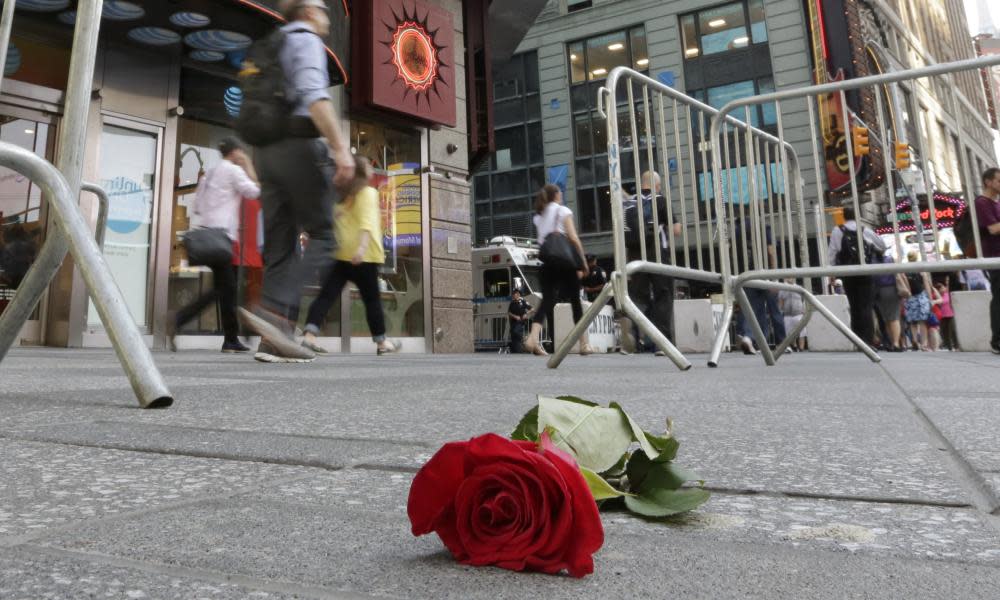My reaction to the Times Square crash: I hoped his name wasn't Muhammad | Mona Chalabi

When I got a news alert last week saying that a car had crashed into pedestrians in New York’s Times Square, my first thought was: “Please, say the driver’s name isn’t Muhammad.” That’s wrong. My first thought should have been about the consequences, not the motives. I should have thought “I hope no one was hurt”, but my brain has been thoroughly trained to view every atrocity as a sorting exercise: terrorism/not terrorism.
That exercise is a dangerous one. Assuming national security and counter-terrorism is one and the same thing (and equating terrorism with “radical Islamic terrorism”, as Donald Trump so often does) simply ignores the other threats that America is facing right now.
Initial reports suggest that the driver in Thursday’s disaster, Richard Rojas, was under the influence of drugs. In fact, authorities even released Rojas’ history of arrests for drunken driving in an effort “to assuage fears of terrorism”. But if the public understood how to separate national security from terrorism, maybe they wouldn’t find that fact comforting at all.
A post shared by Mona Chalabi (@mona_chalabi) on Jan 28, 2017 at 3:51pm PST
In 2014, more than 1.1 million drivers were arrested for driving under the influence of alcohol or narcotics, according to the latest data from the Centers for Disease Control and Prevention. That same year, 9,967 people were killed in alcohol-impaired driving crashes alone. Compare that to the 3,024 people who have been killed in attacks by foreign-born terrorists between 1975 and 2015.
The 40 years’ worth of terrorism deaths don’t come anywhere near a single year of drug-related driving fatalities. If you’re really worried about being a victim of “radical Islamic terrorism”, I strongly recommend you don’t move to anywhere that America has started a war lately. Of all the terrorism deaths that happened worldwide in 2015, over 40% were Iraqis and Afghans, according to the state department.
A post shared by Mona Chalabi (@mona_chalabi) on Jul 6, 2016 at 8:51am PDT
And that’s the other reason why the assumption that security is all about “stopping the Muslim bad guys” is so dangerous. It’s precisely the rhetoric that violent extremists want you to subscribe to. No one benefits more than jihadist recruiters when western politicians say that their biggest national security threat is “radical Islamic terrorism”.
I worry about the next news alert on my phone. I worry that it’s only a matter of time before one of the people in America who needs mental health services, who has a drug addiction or who simply has an evil intention that motivates them to kill also has the name Muhammad. I hope that if that time comes, there won’t be many victims and we’ll focus on them, rather than the motives of the perpetrator.

 Yahoo News
Yahoo News 
